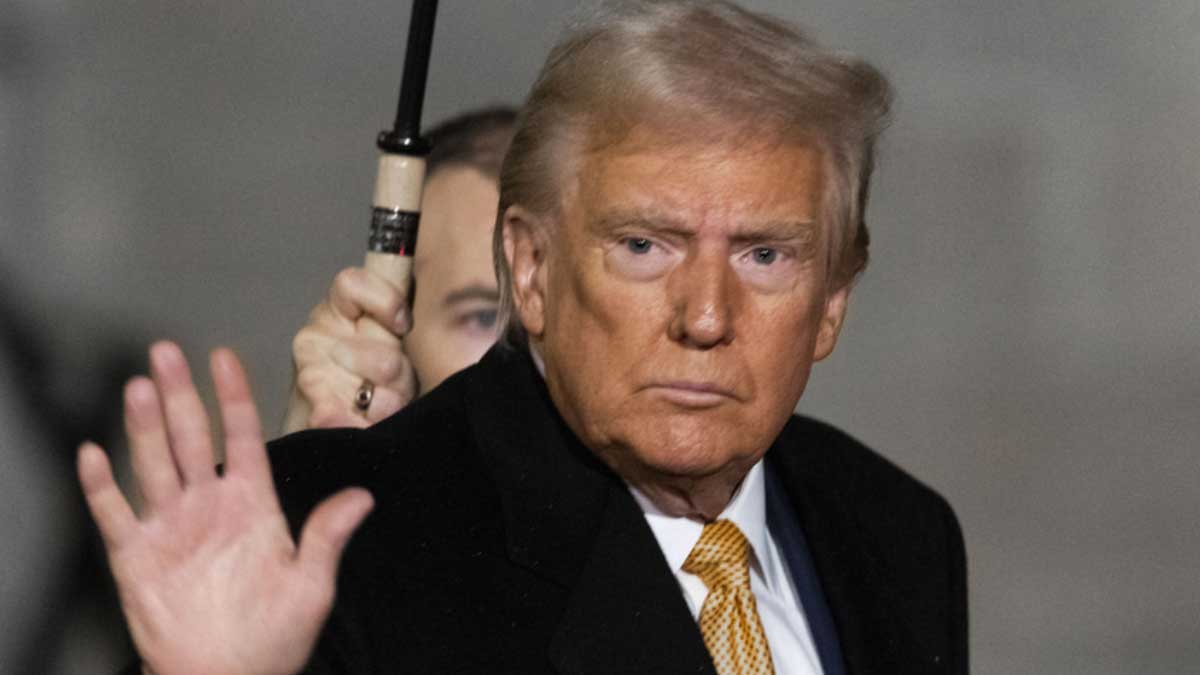- Home
- Billionaires
- Investing Newsletters
- 193CC 1000
- Article Layout 2
- Article Layout 3
- Article Layout 4
- Article Layout 5
- Article Layout 6
- Article Layout 7
- Article Layout 8
- Article Layout 9
- Article Layout 10
- Article Layout 11
- Article Layout 12
- Article Layout 13
- Article Layout 14
- Article Sidebar
- Post Format
- pages
- Archive Layouts
- Post Gallery
- Post Video Background
- Post Review
- Sponsored Post
- Leadership
- Business
- Money
- Small Business
- Innovation
- Shop
Recent Posts
Trump’s Transition Approval Falls Short of Predecessors

A new CNN/SSRS poll indicates that President-elect Donald Trump is receiving majority approval for his handling of the transition process, though his ratings are notably lower compared to those of his predecessors. According to the poll, 54% of respondents believe Trump will perform well as president when he returns to the White House next month, and 55% approve of how he has managed the transition so far. While these figures represent an improvement over Trump’s ratings during his 2016 transition, they fall short of the benchmarks set by previous presidents. For instance, President Joe Biden had a 66% approval rating for his transition process, Barack Obama achieved a commanding 79% in 2008, George W. Bush secured 65% in 2000, and Bill Clinton garnered 62% in 1992.
Public opinion on whether Trump will bring positive change to the country remains divided. While 48% believe he will improve the nation’s direction, this marks a five-point increase from the 43% recorded during his 2016 transition. The growth is particularly notable among traditionally Democratic-leaning demographics, including women, people of color, and individuals under the age of 45, all of whom have shown increased optimism about Trump’s presidency. However, broader national sentiment paints a mixed picture. Only 15% of Americans now say things in the country are going “very badly,” the lowest level since May 2018, while 38% believe things are going well, the highest figure since December 2021. Despite these improvements, 61% still feel the country is on the wrong track, reflecting ongoing skepticism about the nation’s direction.
Trump’s handling of economic issues stands out as a key area of public confidence. The poll shows that 39% of respondents have “a lot” of confidence in his ability to manage the economy, a figure that surpasses his ratings in other areas such as healthcare and foreign policy. His economic confidence ratings also exceed those of previous presidents during their transitions, including George W. Bush (29%), Bill Clinton (20%), and Ronald Reagan (26%). This suggests that Trump’s economic messaging resonates strongly with the public, even as doubts persist about other aspects of his leadership.
Despite these strengths, confidence in Trump’s ability to appoint qualified individuals to his administration has declined. Only 26% of respondents express deep confidence in his personnel decisions, compared to 32% during his 2016 transition. This drop is particularly pronounced among Republicans, with confidence falling from 72% to 56%, and among independents, where it dropped from 26% to 18%. Several of Trump’s recent appointments have drawn significant scrutiny, including his pick for Defense Secretary, Pete Hegseth, who faces allegations of heavy drinking and sexual assault, which he denies. Trump’s initial nominee for Attorney General, Matt Gaetz, withdrew from consideration amid a sexual misconduct scandal, leading Trump to nominate Pam Bondi, a former Florida Attorney General, as his replacement.
The poll’s findings are consistent with a November CBS/YouGov survey that found 59% of respondents approved of Trump’s handling of the transition process. Trump has maintained a steady pace of announcements for key administration roles, starting with naming Susie Wiles as Chief of Staff. However, several controversial appointments signal potential challenges in the Senate confirmation process, which could hinder the efficiency of Trump’s early presidency.
The poll also revealed widespread disapproval of a recent decision by President Joe Biden, with 68% of respondents opposing his pardon of his son, Hunter Biden, on federal tax and gun charges. This controversial move has drawn sharp criticism and overshadowed discussions of Trump’s transition, creating additional political challenges for the Biden administration.
As Trump prepares for his return to the White House, his mixed ratings highlight both opportunities and challenges. While his improved numbers compared to 2016 signal growing support among key demographics, his transition approval remains below historical norms. Public concerns about his personnel choices and doubts about his ability to unify the country present significant obstacles. The next phase of Trump’s presidency will test his ability to convert transition momentum into effective governance and address the high expectations placed upon him.
Recent Posts
Categories
- 193 Countries Consortium Partner1
- 193cc Digital Assets2
- 5G1
- Aerospace & Defense48
- AI37
- Arts3
- Banking & Insurance11
- Big Data3
- Billionaires1,467
- Boats & Planes1
- Business332
- Careers13
- Cars & Bikes79
- CEO Network1
- CFO Network17
- CHRO Network1
- CIO Network1
- Cloud10
- CMO Network18
- Commercial Real Estate7
- Consultant1
- Consumer Tech194
- CxO1
- Cybersecurity73
- Dining1
- Diversity, Equity & Inclusion4
- Education7
- Energy8
- Enterprise Tech29
- Events11
- Fintech1
- Food & Drink2
- Franchises1
- Freelance1
- Future Of Work2
- Games149
- GIG1
- Healthcare79
- Hollywood & Entertainment203
- Houses1
- India’s 1000 Richest1
- Innovation46
- Investing2
- Investing Newsletters4
- Leadership65
- Lifestyle11
- Manufacturing1
- Markets20
- Media327
- Mobile phone1
- Money13
- Personal Finance2
- Policy569
- Real Estate1
- Research6
- Retail1
- Retirement1
- Small Business1
- SportsMoney42
- Style & Beauty1
- Success Income1
- Taxes2
- Travel10
- Uncategorized14
- Vices1
- Watches & Jewelry2
- world's billionaires1,436
- Worlds Richest Self-Made Women2
Related Articles
South Korea Plane Crash: A Tragic Loss and Global Mourning
The tragic plane crash at South Korea’s Muan International Airport on Sunday...
By 193cc Agency CouncilDecember 30, 2024H-1B Visa Debate Splits Trump Allies and Silicon Valley
The debate over H-1B visas has once again become a contentious issue,...
By 193cc Agency CouncilDecember 28, 2024Trump Moves $4B Stake in Truth Social Parent, Stock Drops 6%
Donald Trump recently transferred his 57% stake in Trump Media & Technology...
By 193cc Agency CouncilDecember 20, 2024House Rejects Trump-Backed Funding Bill, Shutdown Looms
The U.S. House of Representatives rejected a new government funding bill on...
By 193cc Agency CouncilDecember 20, 2024















Leave a comment